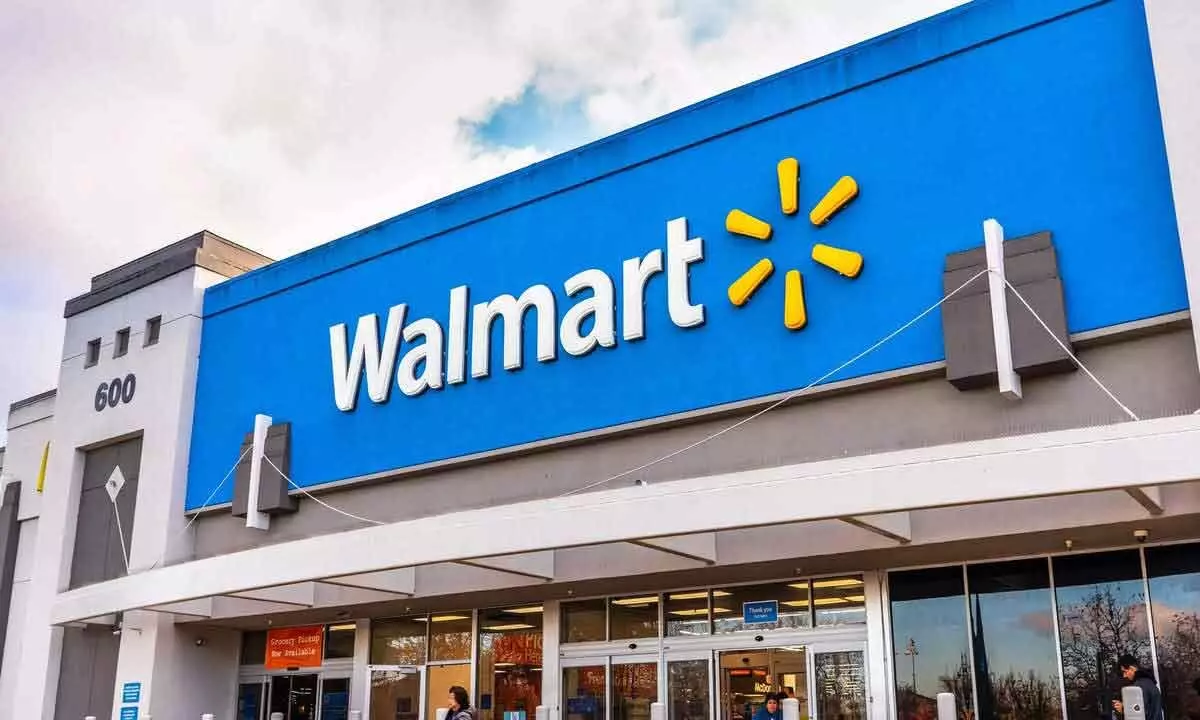India poised to benefit from Walmart’s strategic shift, but challenges remain
Walmart's $10 bn commitment to source from India presents a monumental opportunity with far-reaching consequences for the nation's supply chain industry
image for illustrative purpose

While challenges like fragmented infrastructure and skill gaps persist, this move acts as a catalyst for positive change, driving modernization, upskilling, and consolidation
Walmart's focus on Indian suppliers is a monumental shift with wide-ranging implications. The Indian supply chain industry, while vast and diverse, faces challenges like fragmented infrastructure, skill gaps, and varying compliance standards.
However, initiatives like 'Make in India' and government support for MSMEs are paving the way for improvement. This Walmart development acts as a powerful catalyst, pushing the industry to upskill, consolidate, and adopt technology.
Talking to Bizz Buzz, Akshay Hegde, Co-Founder, ShakeDeal says, “Walmart's $10 billion target will attract fresh investments in manufacturing, warehousing, and logistics. As mentioned earlier, roles in sourcing, production, and tech-enabled supply chain management will see a surge.”
This will boost India's exports, potentially making it a major sourcing hub for Walmart's global operations. Increased demand from such a large player will encourage smaller businesses to participate, boosting their growth and competitiveness.
As a supply chain expert, I'm cautiously optimistic. We need to ensure inclusive growth, benefiting all stakeholders – large manufacturers, MSMEs, and workers. Skill development programs and improved infrastructure are crucial to meet Walmart's standards and global competition, he said.
For the country, this opportunity is multifaceted. Strengthening manufacturing: It bolsters India's 'Make in India' initiative, positioning us as a reliable and competitive manufacturing hub.
Technological leap: Adoption of advanced technologies like automation and data analytics will modernize the Indian supply chain.
Increased visibility on the global stage can attract further investments and partnerships, benefiting various sectors. Encourage environmentally and ethically responsible sourcing practices throughout the supply chain.
Continuously improve quality standards to maintain Walmart's trust and attract other global players. Invest in skill development programs to create a workforce equipped for the future of supply chain management. This is a significant step forward, but collective effort and strategic planning are crucial to maximize its benefits for both the Indian supply chain industry and the nation as a whole.
Roshan Shah, Co-Founder & CEO, VoloFin says, “The Indian supply chain industry is strategically positioned to benefit from Walmart's move to reduce its reliance on China. India offers several advantages, including a large and diverse market, a growing economy, and a favourable business environment. The country's demographic dividend provides a vast workforce, and ongoing government initiatives like ‘Make in India’ aim to boost manufacturing and create a conducive environment for foreign investments.”
Walmart's shift towards India aligns with global trends seeking to diversify supply chains, reducing dependence on a single country. India's proximity to key markets and its emerging status as a manufacturing hub make it an attractive alternative for companies seeking to mitigate risks associated with geopolitical tensions and disruptions, he said.
The Indian supply chain industry is well-positioned to capitalize on Walmart's inclination to reduce dependence on China, leveraging the country's economic potential, workforce, and government initiatives to enhance the business environment. However, infrastructure limitations and regulatory complexities need to be addressed for seamless integration. The Indian government's commitment to improving infrastructure and ease of doing business demonstrates a proactive approach to attracting foreign investment.
India could trigger several notable economic developments. First, India may experience increased foreign direct investment (FDI) in the retail and manufacturing sectors, fostering economic growth and job creation. Additionally, the demand for goods and services in India may rise as Walmart and other companies establish or expand their operations. This could lead to increased consumer spending, positively impacting various sectors such as retail, logistics, and technology. Moreover, the move may stimulate technological advancements and innovation in supply chain management and manufacturing processes within India. Companies could leverage this opportunity to adopt more efficient and sustainable practices, further contributing to economic development.
On a global scale, the shift may encourage other multinational corporations to reconsider their supply chain strategies, potentially leading to a broader trend of diversification away from concentrated manufacturing bases. This could reshape global trade dynamics and provide new opportunities for emerging economies
The diversification of sourcing and manufacturing activities in India can enhance supply chain resilience due to this development. This move allows Walmart to spread its production across different regions, reducing vulnerability to geopolitical tensions, trade disputes, and other risks associated with overdependence on a single country. The supply chain development would involve establishing or expanding manufacturing facilities in India. This entails negotiating new supplier relationships, navigating regulatory frameworks, and addressing potential challenges related to infrastructure and logistics. Integrating Indian suppliers into the global supply chain requires collaboration and coordination to ensure seamless operations.
Furthermore, the shift may lead to the development of regional supply chain hubs in India, fostering local economic growth and job creation. However, challenges such as adapting to India's diverse regulatory landscape, infrastructure limitations, and ensuring compliance with quality standards would need careful consideration.

